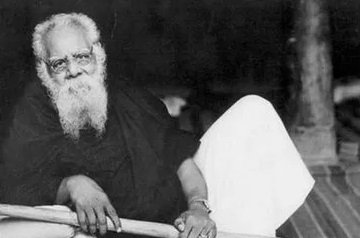
On September 17, 2024, Chennai celebrated the 146th birth anniversary of Periyar E.V. Ramasamy, one of Tamil Nadu’s most revered social reformers and rationalists. The Chief Minister of Tamil Nadu, M.K. Stalin, led the tributes, honoring Periyar’s unwavering commitment to social justice, equality, and rationalist ideals. Periyar’s legacy continues to resonate in Tamil society, inspiring generations to work toward a more equitable world.
Early Life and Political Awakening
Periyar E.V. Ramasamy, born in 1879 in Erode, Tamil Nadu, started his political journey as a member of the Indian National Congress. However, his early experiences with the party revealed deep-rooted caste inequalities. A turning point came when he witnessed Brahmin and non-Brahmin students being segregated in a Congress-run school. This discriminatory practice profoundly impacted him, leading him to question the party’s commitment to social equality and inclusivity.
Disillusioned with the Congress’s approach to caste issues, Periyar left the party in 1925 and joined the Justice Party, a political group that championed the rights of non-Brahmin communities. This move marked the beginning of Periyar’s lifelong crusade against caste-based oppression and social injustice.
The Birth of the Self-Respect Movement
Periyar’s dissatisfaction with the existing social structure led him to create the Self-Respect Movement in the late 1920s. The movement aimed to challenge the entrenched dominance of Brahmins in Tamil society and promote social equality for all, regardless of caste or religion. The Self-Respect Movement was a revolutionary force that questioned traditional religious practices, gender inequalities, and caste-based hierarchies, advocating for a society rooted in rationalism and humanism.
The Vaikom Satyagraha
Periyar’s activism gained national attention during the Vaikom Satyagraha of 1924, a protest in Kerala that sought to secure public access for lower-caste individuals to areas around the Vaikom temple, a space traditionally reserved for upper castes. His leadership in the movement was instrumental in elevating the fight for social justice beyond Tamil Nadu, establishing him as a key figure in India’s broader struggle against caste oppression.
Founding of Dravidar Kazhagam
In the 1940s, Periyar took his advocacy further by founding the Dravidar Kazhagam (DK), a political organization that sought to unite the Dravidian-speaking populations of southern India under the banner of “Dravida Nadu.” This proposed sovereign state would encompass Tamil, Telugu, Malayalam, and Kannada speakers, reflecting Periyar’s vision of a shared cultural and linguistic identity among the southern states, separate from the Aryan-dominated North. While his vision of Dravida Nadu never materialized, the Dravidar Kazhagam laid the foundation for Dravidian politics, which continues to shape Tamil Nadu’s political landscape.
Social Reforms and Gender Equality
Periyar’s advocacy wasn’t limited to caste issues. He was a staunch proponent of gender equality and championed women’s rights long before it became a mainstream issue. He advocated for women’s right to own property, the right to divorce, and the right to live independently, free from the patriarchal norms that restricted their autonomy.
Periyar’s progressive views extended to his push for inter-caste marriages and inter-dining, where individuals from different castes would eat together to break down societal barriers. He believed that dismantling caste identities was essential for building a truly equal society, free from the oppressive structures of the past.
Periyar’s Enduring Legacy
Periyar E.V. Ramasamy passed away in 1973, but his revolutionary ideas continue to inspire and influence Tamil society today. Revered as “Thanthai Periyar” or the Father of Modern Tamil Nadu, his efforts to promote self-respect, equality, and rationalism have left an indelible mark on the region’s political and social fabric.
Periyar’s influence is especially evident in the evolution of Dravidian politics, which draws heavily from his ideology of social justice, anti-casteism, and rationalist thinking. His vision for a just and equal society remains deeply relevant, as India continues to grapple with issues of caste, gender, and religious inequality.
A Beacon for Social Justice
As Tamil Nadu and the world commemorate the 146th birth anniversary of Periyar, his legacy stands as a powerful reminder of the need for ongoing social reform. His fight against caste discrimination, gender inequality, and irrational beliefs challenged centuries of entrenched societal norms. In remembering Periyar, we celebrate not only his contributions but also the enduring spirit of his movement, which calls for a society where every individual is treated with dignity, respect, and equality.

